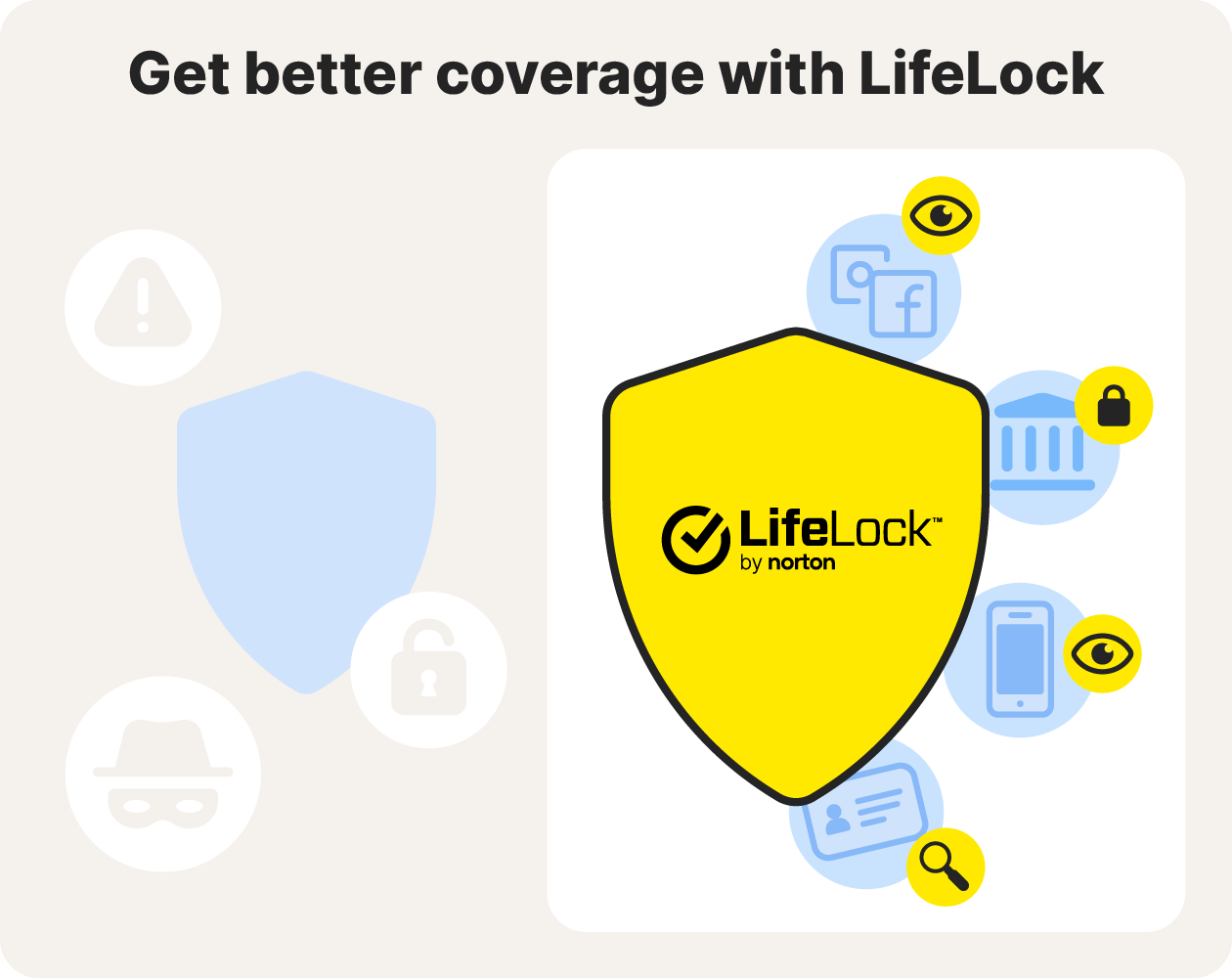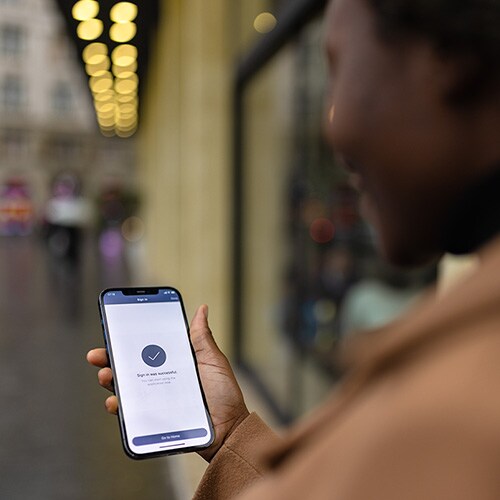*First-year pricing when billed monthly. Prices may increase upon plan renewal.
Identity theft costs consumers billions every year. And with fraudsters able to leverage powerful new AI tools to deceive victims and steal their identities, investing in protection is arguably more important than ever.
However, not all identity theft protection services offer the same level of coverage. While Aura offers a variety of features, there are stronger alternatives with more comprehensive monitoring features, larger identity theft reimbursement packages, and better user-review ratings on sites like Trustpilot.
Aura is a relative upstart in the identity protection space, founded in 2014 by Hari Ravichandran in Boston, Massachusetts. The company was formed through the merger of iSubscribed and Intersections Inc., and it owns several brands, including Intrusta and Identity Guard.
Aura has captured attention with widespread advertising and claims of “white glove” support, but it’s unclear if the service is worth it. Read on for a breakdown of what real users think of Aura, the advantages and disadvantages of the service, and a deep dive into its key features.*
Aura reviews: What users and experts say
Review aggregators like Trustpilot and the Better Business Bureau (BBB) reveal that, while some Aura customers are pleased with its cheap pricing, others are frustrated with its customer service and the apparent difficulty of canceling memberships, disputing fees, or securing reimbursements after charges they see as unfair.
Aura customers have also complained that the company wasn’t there for them when it really mattered — in the aftermath of a cybersecurity incident or identity theft. Some unhappy customers complain about spending hours on hold on the phone and being unable to get through to a real human when they need support. And Aura was completely unable to help one customer whose identity was used to set up fraudulent businesses.
Trustpilot reviews indicate that Aura performs worse than LifeLock in terms of customer satisfaction, with Aura earning an average rating of 4.3 on Trustpilot compared to LifeLock’s 4.8. The company also has a disappointing Customer Review Rating of 1.06 out of 5 on BBB.
Source |
Aura rating |
|---|---|
Trustpilot |
4.3 |
Better Business Bureau |
1.06 |
Apple App Store |
4.7 |
PCMag expert review |
3.5 |
* Ratings accurate as of August 2025
Experts, meanwhile, give mixed reviews of Aura’s identity protection services, with some, like Security.org, noting its all-around protection and customization options, and others, such as PC Mag, calling out the unsatisfactory nature of its phishing protection (phishing being a leading cause of identity theft).
Both expert reviewers and customers have also criticized the performance or transparency of Aura’s VPN, parental controls, and device-level protection.
Advantages of Aura
Aura claims to offer “all-in-one” protection against identity theft, scams, and online threats. These are some of the benefits of the identity theft protection service:
- Cheap plans: Aura’s individual plan costs $15 a month, which is cheaper than more premium services like LifeLock Total. However, lower-tier competing plans, like LifeLock Core, are available at comparable cost.
- Industry-standard protection: Aura checks some of the boxes you would expect from an identity protection service, with features like financial transaction alerts, credit monitoring, and privacy monitoring.
- Adequate insurance coverage: Aura provides up to $1 million in identity theft insurance per adult. This should be enough to cover the cost of having your identity stolen, but legal fees and personal expenses can quickly add up in more complex cases. Remember that identity theft isn’t just about the money in your bank account — identity thieves can also rack up debt in your name and leave you with ongoing legal issues.
LifeLock Total provides up to $3 million in total coverage, split equally between stolen funds reimbursement, coverage for lawyers and experts, and personal expense reimbursement. That gives you greater peace of mind that you’re protected against the potentially ruinous financial consequences of identity theft.
Drawbacks of Aura
Despite having made a name for itself as a relative newcomer in the industry, Aura has notable drawbacks that call into question whether it’s worth it, especially in comparison to other, more established identity theft protection services.
- Mixed reviews: Aura has lower average user review scores than some comparable identity theft protection brands. For example, LifeLock has higher ratings on TrustPilot, in the App Store, and at the Better Business Bureau.
- Rigid feature set: With Aura, you can’t opt out of features you may not need, like antivirus or a VPN. Its single-tier model means you pay for everything or nothing.
- No social media monitoring: Social media is a key vector in cyberattacks that lead to identity theft. Aura’s lack of social media monitoring leaves users without coverage they may find useful. LifeLock’s social media monitoring feature alerts users to suspicious changes to account settings and risky links on Facebook, Instagram, LinkedIn, X (Twitter), and YouTube.
- No file-sharing network searches: This service, apparently absent in Aura plans but included in LifeLock Total, monitors for your personal information across file-sharing networks, providing alerts about personal information exposure beyond just the dark web.
- No payday loan lock: Fraudsters taking out payday loans in your name can leave you exposed to financial chaos. Aura appears to lack a payday loan lock feature (it’s not mentioned on their site), which can help prevent scammers from opening these high-risk credit lines.
- No phone takeover monitoring: SIM swap scams are a serious threat, potentially allowing cybercriminals to hijack your phone number to access your accounts, even those secured with 2FA. Unlike some alternatives like LifeLock, none of Aura’s plans appear to offer monitoring for phone takeover attempts, such as suspicious carrier changes or SIM requests.
- No Buy Now Pay Later monitoring: Buy Now Pay Later (BNPL) services can be exploited in identity fraud schemes. Aura does not appear to offer monitoring for such accounts, unlike competing services like LifeLock Advanced and Total.
- Limited credit score tracking: Aura offers monthly VantageScore updates that can help you track your credit health. But some alternatives offer greater credit score tracking, including LifeLock Total which provides daily updates from one bureau.
- Poorly functioning “extra” features: While Aura’s core features, like its credit monitoring, seem up to standard, some users complain that peripheral features, like parental controls and the bundled VPN, underperform. This means users have to pay for additional, potentially unnecessary services just to get the features they want.
- Inconsistent monitoring: Some users have claimed that alarming incidents, like bank account hacking attacks or personal information being exposed on the dark web, were not flagged by Aura’s monitoring features.
- Frequent glitches: Some users complain that the Aura app can cause device performance issues, including triggering the blue screen of death (BSOD) on their computers or preventing normal processes from working. Others report that Aura makes logging into online banking problematic.
- Unclear long-term pricing: Despite the company’s claims to the contrary, Aura’s pricing and costs may not be nearly as transparent or straightforward as they seem. Discounts advertised on their website are unclear, the cost of a plan can vary depending on what link you use to sign up, and there are reports of unexpected price hikes upon the renewal of an annual plan.
- Difficulty canceling: One of the most frequent complaints from Aura customers is the difficulty of canceling memberships. Many former customers report on public review sites that they received charges even after attempting to cancel or had their plan auto-renew when they intended to end it. A “free trial” of Aura may therefore be a bigger financial commitment than new users anticipate.
Aura features: How does Aura work?
Aura has some of the same features as other big players in the identity protection market. Users get access to credit monitoring, identity theft insurance, expert fraud remediation, account breach monitoring, personal information monitoring, and more.
The Aura app also bundles in device security features like antivirus, a VPN, and a password manager, which not all identity protection customers may want.
- Identity monitoring: Aura tracks personal details like your Social Security number and alerts you if it finds them in places that might suggest a data leak or identity misuse.
- Credit monitoring: Aura checks your credit reports at the three main bureaus and sends alerts for key changes that may signal fraud, though this information is often available elsewhere for free.
- Financial transaction monitoring: Aura notifies you of suspicious transactions from linked credit card, investment, and banking accounts, assuming you’re willing to grant access to them.
- Aura antivirus: Aura includes antivirus software that scans for malware, though it may lack many of the advanced features found in standalone antivirus solutions (PCMag calls its phishing protection “dismal”).
- VPN: Aura offers a VPN that encrypts your internet connection. However, Aura’s VPN does not allow you to choose which country you connect from, and it lacks split tunneling functionality — meaning you may have to turn the VPN off manually if it causes websites to malfunction.
- Password manager: Aura includes a basic password manager that stores and auto-fills passwords.
- People search site removal: Aura attempts to remove your information from public people search and data broker sites, though these removals may not be permanent.
- Identity theft insurance: Aura includes up to $1 million in identity theft insurance per covered adult, though coverage is limited to qualifying expenses and subject to claims processing. Other services, notably LifeLock Total, provide higher total reimbursement coverage.
- Expert fraud remediation: In the event of identity theft, Aura provides access to fraud resolution agents, although some unsatisfied customers complain that they had trouble getting through to a real person — despite claims of “white glove” treatment.
- Account breach monitoring: Aura alerts you if it detects your account details on the dark web or in a known breach. If you’re concerned that your personal information has been leaked online, you can use a free tool, like LifeLock’s breach detection service, to see if your information has been found.
- Home and auto title monitoring: Aura monitors property and vehicle title changes to help you detect potential fraud.
- Lost wallet remediation: If you lose your wallet, Aura offers help contacting banks and card issuers, support that many banks already provide directly.
- Investment account monitoring: Aura alerts you to certain activity in investment accounts, provided you link them in the app.
- Parental controls: Aura includes digital parenting tools like screen time limits and web filters. However, some customers raise questions about the efficacy of these controls.
Aura plan breakdown
Aura’s pricing depends on the number of people on the plan. A child plan costs $13 a month, whereas a family plan for five adults and unlimited children (Aura’s most expensive offering) costs $50 a month. A standard individual plan is $15 a month and includes protection for 10 devices. And some Aura customers have complained about large unexpected price increases upon renewal.
Aura’s features are mostly the same across all plans, although the Family Plan also includes extras like parental controls, cyberbullying alerts, and sex offender geo alerts.
Plan |
Price* |
Coverage |
|---|---|---|
Individual |
$15 per month |
1 adult |
Couple |
$29 per month |
2 adults |
Family |
$50 per month |
5 adults and unlimited kids |
Kids |
$13 per month |
Unlimited kids |
Who should use Aura?
Aura may appeal to users on a tight budget looking for convenience over customization, and who prefer an all-in-one solution that bundles identity protection, antivirus, and a VPN. However, customers who want deeper control, more specialized tools, and comprehensive identity theft protection may find Aura’s broad approach limiting. Aura might suit casual users more than those seeking robust, standalone protections in each category.
Are there better identity theft services?
Aura may be a good option for consumers who just want a simple pricing plan, but other identity theft protection services boast greater reimbursement coverage and better user ratings. LifeLock Total offers higher maximum coverage, which provides improved peace of mind that you’re protected against the financial fallout of serious identity theft cases — with no limits on the number of claims you can file.
Plus, Aura’s fraud monitoring has some gaps compared to LifeLock Total, with no phone takeover monitoring, social media monitoring, or payday loan locks. LifeLock monitors hundreds of millions of data points a second, helping users spot potential threats and protect against the consequences of identity theft.


Is Aura better than LifeLock?
No. For most consumers, LifeLock is a better option than Aura, especially if you’re looking for comprehensive protection that’s trusted by millions. There’s a reason that LifeLock is the most reputable brand in identity theft protection. With coverage of up to $3 million per adult†††, LifeLock Total has your back when identity theft gets serious.
Average reviews on public platforms like Trustpilot also indicate that LifeLock provides greater customer satisfaction, with a Trustpilot score of 4.8 compared to Aura’s 4.3. And LifeLock was awarded Best Digital Identity Theft Protection in Security.org’s review of the best identity theft protection services of 2025, with a SecurityScore of 9.7.
If you’re serious about identity protection, LifeLock may be more worth it to you.
So, is Aura worth the price?
Maybe not. Aura’s budget-friendly bundles and promises of “white glove” treatment may sound appealing, but some lackluster customer reviews imply that it may not be worth the cost. While identity theft protection is certainly worth it, LifeLock may provide better value for customers seeking top-tier identity protection.
LifeLock is your alternative to Aura
When it’s your identity on the line, you don’t want to settle for second or third best. LifeLock is the #1 most trusted identity theft protection brand on the market, offering meticulous fraud monitoring that can help you stay one step ahead of identity thieves. And, if the worst happens, our U.S.-based team of restoration specialists is on hand 24/7 to help you restore your identity. Subscribe to LifeLock Total for comprehensive protection that has your back when it matters most.
The content in this article reflects the research and opinions of LifeLock editors and product experts. While we strive to provide accurate and up-to-date information, products, features, and capabilities may change over time. For the latest details, refer to Aura’s official website.
Facebook, the “f” logo, Instagram, and the Instagram logo are trademarks of Facebook or its affiliates. LinkedIn and the LinkedIn logo are registered trademarks of LinkedIn Corporation and its affiliates in the United States and/or other countries. Twitter/X and the Twitter/X logo are trademarks of Twitter, Inc. or its affiliates. YouTube is a registered trademark of Google, LLC.
Editor’s note: Our articles provide educational information. LifeLock offerings may not cover or protect against every type of crime, fraud, or threat we write about.
Start your protection,
enroll in minutes.
LifeLock is part of Gen – a global company with a family of trusted brands.
Copyright © 2026 Gen Digital Inc. All rights reserved. Gen trademarks or registered trademarks are property of Gen Digital Inc. or its affiliates. Firefox is a trademark of Mozilla Foundation. Android, Google Chrome, Google Play and the Google Play logo are trademarks of Google, LLC. Mac, iPhone, iPad, Apple and the Apple logo are trademarks of Apple Inc., registered in the U.S. and other countries. App Store is a service mark of Apple Inc. Alexa and all related logos are trademarks of Amazon.com, Inc. or its affiliates. Microsoft and the Window logo are trademarks of Microsoft Corporation in the U.S. and other countries. The Android robot is reproduced or modified from work created and shared by Google and used according to terms described in the Creative Commons 3.0 Attribution License. Other names may be trademarks of their respective owners.








